Members
The network brings together senior and junior researchers from universities in Europe and USA with expertise in quantitative (computational) and qualitative (interactional, pragmatic, ethnographic) approaches to digital language and linguistics. Its core group includes top-level international researchers at senior and mid-career stage who integrate doctoral candidates and/or early-career researchers from their institutions into the network. The languages covered include German, (American) English, Dutch, Luxemburgish, Chinese, and Greek.
Universität Hamburg
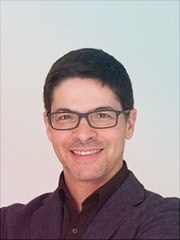
Photo: Jannis Androutsopoulos
- Jannis Androutsopoulos is Professor of German Linguistics and Media Studies at the Universität Hamburg.
- His main research interests are media linguistics, sociolinguistics, multilingualism, and linguistic landscapes.
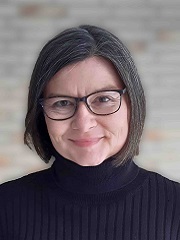
Photo: Heike Zinsmeister
- Heike Zinsmeister is a Professor of German Linguistics at the Universität Hamburg.
- Her main research interests are corpus linguistics, computational linguistics, pragmatics, corpus-based language acquisition and syntax of German.
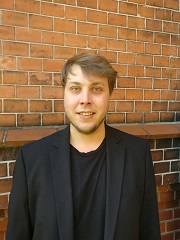
Photo: Markus Majewski
- Markus Majewski is doctoral student and research assistant at the Universität Hamburg.
- His research interests include discourse studies, sociolinguistics, multimodality, and political linguistics. His doctoral project deals with a diachronic discourse analysis on the topic of veganism.
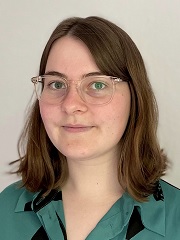
Photo: Carla Sökefeld
- Carla Sökefeld is a research assistant at the department of German linguistics at the University of Hamburg.
- Her research interests include language change, corpus and computational linguistics, and gender linguistics, which she is combining in her work on her PhD thesis on the topic of semantic change and pejoration of personal nouns in German and English.
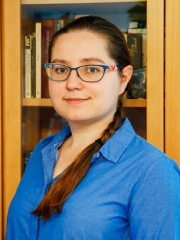
Photo: Jenia Yudytska
- Jenia Yudytska is a PhD student at the University of Hamburg.
- Her project investigates the influence of device on linguistic features in computer-mediated communication. She is interested in computational sociolinguistics, human-computer interaction, and multilingualism online.
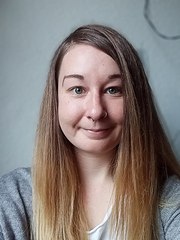
Photo: DiLCo
- Anna Schlauf is a Masters student of German Linguistics and student assistant at the Universität Hamburg.
- She is especially interested in political linguistics, media linguistics and sociolinguistics.
Indiana University
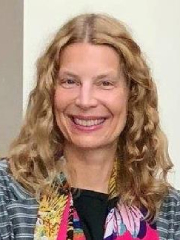
Photo: Susan Herring
- Susan C. Herring is Professor of Information Science and Linguistics and Director of the Center for Computer-Mediated Communication (CMC) at Indiana University, Bloomington.
- Trained in linguistics at the University of California, Berkeley, she was among the first scholars to apply linguistic methods of analysis to CMC, initially with a focus on gender issues. Subsequently, she consolidated those methods into the Computer-Mediated Discourse Analysis approach, which she has used to analyze structural, pragmatic, interactional, and social phenomena in technology-mediated communication. Her recent interests include multilingual and graphical CMC. She is a past editor of the Journal of Computer-Mediated Communication and currently edits Language@Internet.
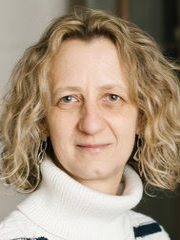
Photo: Sandra Kübler
- Sandra Kübler is a Professor of Computational Linguistics in the Department of Linguistics at Indiana University.
- Her research interests span syntactic parsing, sentiment analysis, emotion detection, abusive language detection, computational corpus linguistics, and the creation of CL resources for under-resourced languages.

Photo: Holly Lopez Long
- Holly Lopez Long is a doctoral student at Indiana University.
- Her research interests include computer-mediated communication, communication ecologies/media choice, natural language processing, and abusive language detection. In the area of natural language processing and abusive language detection she is working on two projects. One that investigates annotation quality in abusive language data sets and its effect on machine learning results. The second project investigates data set characteristics for cross-domain abusive language classification. She is also working on a project that explores the development of communication ecologies and media choice when it comes to smart home technologies and, in particular, the use of voice user interfaces/smart speakers to facilitate interactions.
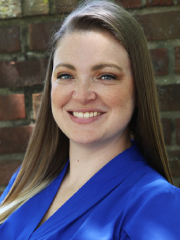
Photo: Leah Schaede
- Leah Schaede is a PhD student in Computational Linguistics at Indiana University.
- She is currently interested in abusive language/hate speech detection, authorship attribution and sentiment analysis. She is currently working on machine learning techniques to identify hate speech on Twitter and Reddit. She has been collaborating on annotation schemas for types of hate speech, such as Anti-Semitism and Misogyny as part of an internship with a non-profit.
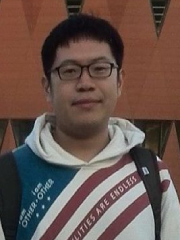
Photo: Zuoyu Tian
- Zuoyu Tian is a PhD student in Computational Linguistics at Indiana University.
- His current research covers the following areas: track language change with computational methods, offensive speech detection, and corpus linguistics.
University of Copenhagen

Photo: A. Candefors Stæhr
- Andreas Candefors Stæhr is Associate Professor at the University of Copenhagen and PI of the research project SoMeFamily.
- He is interested in everyday language use on social media and how such language practices can be studied from the perspectives of linguistic ethnography and sociolinguistics.
King's College London
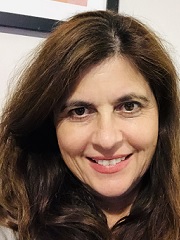
Photo: Alexandra Georgakopoulou
- Alexandra Georgakopoulou is Professor of Discourse Analysis & Sociolinguistics and Co-Director of the Centre for Language, Discourse & Communication at King’s College London.
- She has developed small stories research, a paradigm for analyzing everyday-life stories in connection with social relations & identity politics. Recently, she has been synthesizing technographic, corpus-assisted and narrative analytic methods to critically interrogate the proliferation and lately ‘curation’ of small stories on social media, with a focus on stories as a feature on platforms (e. g. Instagram). This work was carried out within the ERC Project ‘Life-writing of the moment: The sharing and updating self on social media’ (www.ego-media.org). Latest publications include: ‘Quantified storytelling: A narrative analysis of metrics on social media’ (with Stefan Iversen & Carsten Stage, 2020) and ‘The Cambridge Handbook of Discourse Studies’ (co-edited with Anna De Fina, 2020).
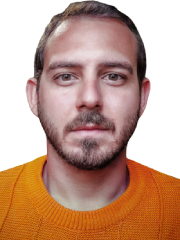
Photo: Christos Sagredos
- Christos Sagredos is a doctoral researcher in the Centre for Language, Discourse and Communication (School of Education, Communication and Society) at King's College London.
- His research interests revolve around the relationship between language, gender and sexuality and the use of language in digital environments. His doctoral research seeks to explore how sex workers use language to construct a variety of identities (e. g. gendered, sexual, political, professional) in relation to their sex work. Drawing insights from linguistic ethnography, digital ethnography and small stories research, the focus of his thesis is mainly on sex workers' storytelling practices in various digital environments (e. g. social media, dating/hook-up websites/apps).
University of Luxembourg
- Peter Gilles is a Professor of Linguistics at the University of Luxembourg.
- His research interests are in the areas of dialectology, phonetics/phonology, morphology, language history, variational linguistics and onomastics.
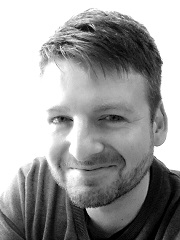
Photo: Christoph Purschke
- Christoph Purschke works as an Associate Professor in Computational Linguistics at the Institute for Luxembourgish Linguistics and Literature.
- In his work at the University of Luxembourg he combines different disciplines and methodological approaches to the analysis of language as a cultural phenomenon. This includes the expansion of Sociolinguistics through data-driven and computational approaches (Computational Sociolinguistics) but also the further development of algorithms and models in Computer Science through sociocultural data (Cultural AI). In this context, he is also concerned with the theoretical foundations of computer-aided cultural practices for the analysis of social processes (Culture & Computation). In addition, he is committed to the development of digital language resources and applications for Luxembourgish (Natural Language Processing), as well as to an active dialogue between science and society in the context of participatory research projects (Citizen Science).
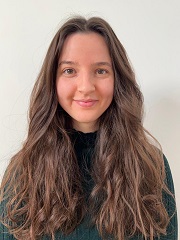
Photo: Melissa Mujkić
- Melissa Mujkić is a doctoral researcher in Luxembourgish Linguistics at the University of Luxembourg.
- Her research interests include sociolinguistics, media linguistics, variational linguistics, and linguistic landscapes. Her current project focuses on Luxembourgish youth communication on WhatsApp. Analyses will be conducted using a mixed-methods approach to showcase language use, variational structures, code-switching, code-mixing, etc. A corpus of WhatsApp chats with Luxembourgish as the base language will be compiled using the Mobile Communication Database 2 (MoCoDa2) and provided on a voluntary basis by adolescents aged between 12 and 19 years who will be actively involved as citizen scientists in the data collection process. The findings of this study will contribute to research on digital communication among youths in Luxembourg.
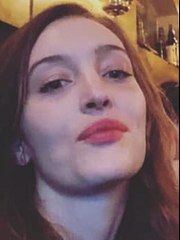
Photo: Catherine Tebaldi
- Catherine Tebaldi is a postdoctoral researcher at the University of Luxembourg, Culture and Computation Lab.
- She is a linguistic anthropologist researching the intersection of far-right ideology and lifestyle practices, with a specific interest in gender and aesthetics. Her work can be seen in 'Gender and Language' and 'Information Communication and Society' and 'Language Culture and Society'. Her book, 'Alt-Education, on far-right ideologies of language and knowledge', is forthcoming in 2024.

Photo: DiLCo
- Alistair Plum is a postdoctoral researcher at the University of Luxembourg, Culture and Computation Lab.
- He is a computational linguist, with a strong interest in compiling, analysing and restructuring data for various tasks in NLP, including training language models for low resource languages, Information Extraction, Sentiment Analysis, offensive langauge detection and more.
- He is particularly interested in working at the intersection of humanities subjects and computer science, in order to facilitate large-scale research and applications for research.
Utrecht University

Photo: Dong Nguyen
- Dong Nguyen is an assistant professor in Natural Language Processing at Utrecht University (The Netherlands).
- She is especially interested in computational techniques to explore questions about language variation.
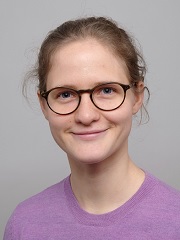
Photo: Anna Wegmann
- Anna Wegmann is a PhD candidate at the NLP and Society lab at Utrecht University.
- Generally, she is interested in conversations and society from a computational perspective. Her research questions include: How do people talk to each other (online)? What language variation "strategies" are employed? What are their effects? What works in different contexts?
